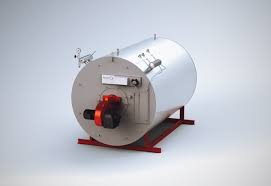
Nov . 08, 2024 13:56 Back to list
Effective Approaches for Water Treatment in Steam Boiler Operations
Steam Boiler Water Treatment Ensuring Efficiency and Longevity
Steam boilers are integral to various industrial processes, playing a vital role in power generation, heating, and manufacturing. However, the efficiency and longevity of these systems heavily depend on the quality of the water used. Improperly treated water can lead to a myriad of issues, including scale formation, corrosion, and boiler failures, resulting in costly downtime and repairs. Therefore, understanding boiler water treatment is crucial for maintaining optimal performance.
The Importance of Boiler Water Treatment
Water used in steam boilers often contains impurities such as minerals, gases, and organic matter. When water is heated, these impurities can lead to several detrimental effects
1. Scale Formation Hard water, which contains high levels of calcium and magnesium, can lead to scale deposits inside the boiler. Scale acts as an insulating layer, reducing heat transfer efficiency and potentially causing overheating. When the boiler must work harder to achieve the desired temperature, it leads to increased fuel consumption and operational costs.
2. Corrosion Oxygen, carbon dioxide, and other aggressive contaminants in the feedwater can cause corrosion in boiler components. Corrosion not only weakens metal structures but can also lead to leaks and catastrophic failures. Regular treatment helps mitigate these issues.
3. Foaming and Carryover Certain impurities can cause foaming in the boiler water, which can lead to carryover of water into the steam. This carryover can introduce contaminants into the steam system, adversely affecting equipment performance and product quality.
4. Impact on Steam Quality High levels of dissolved solids can affect steam quality, leading to contamination of the end product in industries such as food processing or pharmaceuticals.
Key Components of Boiler Water Treatment
To ensure the water used in steam boilers is of suitable quality, several treatment methods are commonly employed
1. Pre-Treatment Before the water enters the boiler, it often undergoes pre-treatment processes such as filtration, softening, and demineralization. Water softening removes hardness-causing minerals, while demineralization eliminates dissolved solids, ensuring a low total dissolved solids (TDS) level.
steam boiler water treatment

2. Chemical Treatment Various chemicals are added to the boiler water to control scale formation, corrosion, and pH levels. Common chemicals include phosphates, which help prevent scale, and oxygen scavengers, which eliminate dissolved oxygen to prevent corrosion. Moreover, pH control agents, such as caustic soda, are used to maintain an alkaline environment that helps protect boiler materials.
3. Monitoring and Control Continuous monitoring of water quality parameters such as pH, conductivity, and impurities is essential. Advanced automation systems can adjust chemical dosages based on real-time data, ensuring optimal water chemistry and performance.
4. Blowdown Procedures Regular blowdown is necessary to remove accumulated sludge and concentrated impurities from the boiler. This process helps manage TDS levels and maintains the efficiency of the heat exchange process.
Best Practices for Boiler Water Treatment
1. Regular Testing Conduct routine water quality testing to identify any emerging issues before they escalate. This can include checks for hardness, alkalinity, oxygen levels, and dissolved solids.
2. Tailored Treatment Plans Each boiler system may require a unique treatment plan based on its operational parameters and water supply characteristics. Engaging with water treatment experts can help design a customized solution.
3. Training and Education Ensure that personnel operating and maintaining boiler systems are well-trained in water treatment principles and practices. Awareness of the importance of water quality can lead to better operational decisions.
4. Maintenance of Water Treatment Equipment Regularly inspect and maintain filtration, softening, and chemical dosing equipment to ensure consistent performance.
Conclusion
Effective steam boiler water treatment is essential for maximizing efficiency, prolonging equipment life, and preventing costly operational disruptions. By understanding the challenges posed by boiler feedwater and employing comprehensive treatment strategies, industries can ensure reliable steam generation, thereby enhancing productivity and overall system performance. Investing in proper water treatment not only pays off in improved efficiency and reduced maintenance costs but also contributes to a more sustainable and environmentally friendly operation.
-
High-Efficiency Commercial Oil Fired Steam Boiler for Industry
NewsJul.30,2025
-
High-Efficiency Biomass Fired Thermal Oil Boiler Solutions
NewsJul.30,2025
-
High Efficiency Gas Fired Thermal Oil Boiler for Industrial Heating
NewsJul.29,2025
-
High-Efficiency Gas Fired Hot Water Boiler for Sale – Reliable & Affordable
NewsJul.29,2025
-
High Efficiency Biomass Fired Hot Water Boiler for Industrial and Commercial Use
NewsJul.29,2025
-
High-Efficiency Biomass Fired Hot Water Boiler for Industrial Use
NewsJul.28,2025
Related PRODUCTS






















